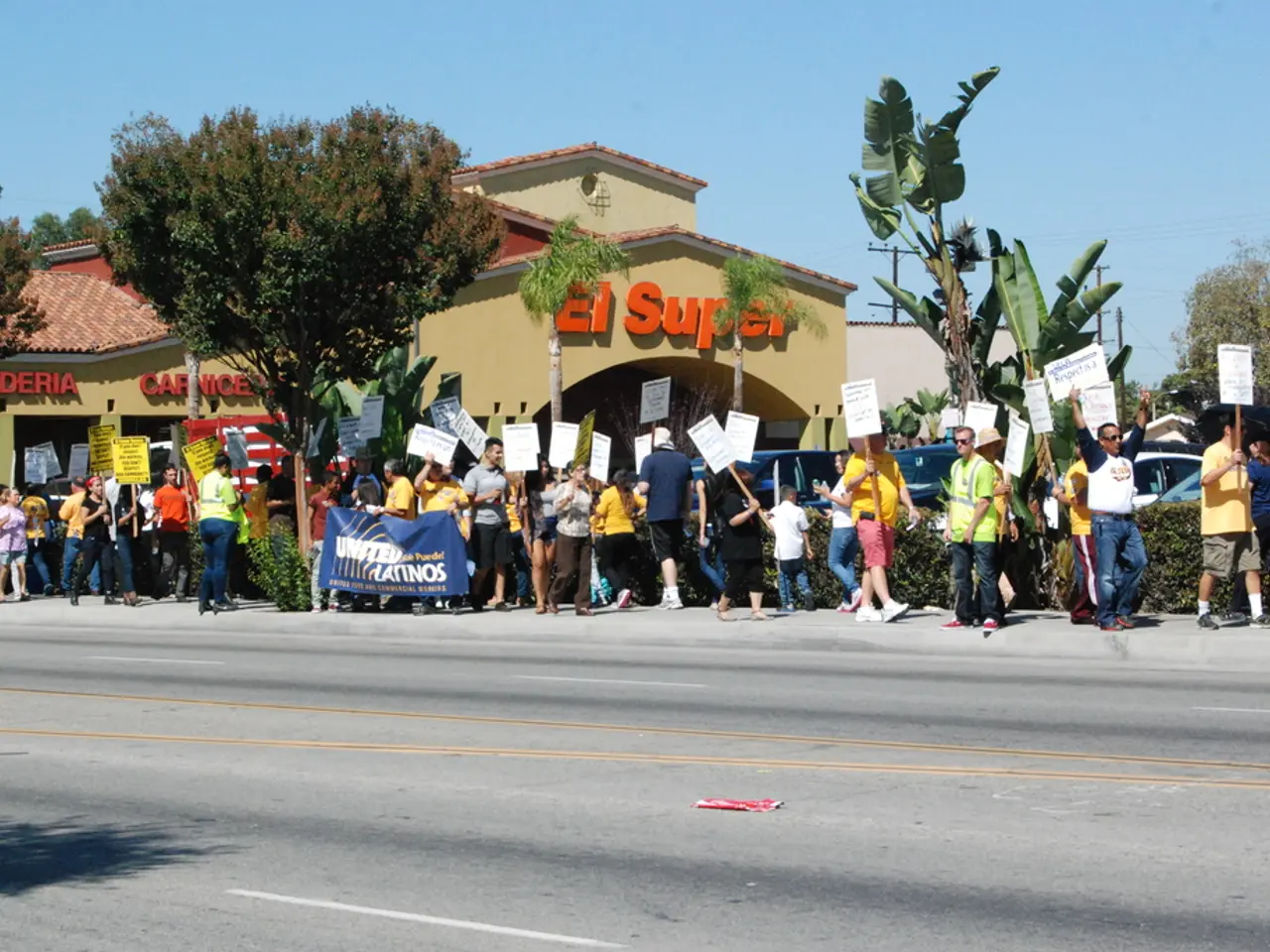German Government Seeks to Abolish Family Reunification for Subsidiary Protection Refugees, End Fast-Track Citizenship
Government'sdecision: Abolition of Family Reunification and Express Citizenship Programs - Authorities Announce Decision: Family Reunification, Expedited Citizenship Process
The newly formed black-red coalition government in Berlin has initiated its first measures to tighten migration policies, just weeks after assuming office. The cabinet has approved two draft bills from Federal Interior Minister Alexander Dobrindt (CSU), pending approval from the Bundestag.
Specifically, the proposals aim to bar certain refugees from bringing close family members to Germany, and terminate the accelerated naturalization process for well-integrated immigrants after three years.
Affected Group and Numbers
The changes primarily impact refugees with subsidiary protection status. These individuals, though not granted asylum or refugee status, are allowed to stay in Germany due to fears of political persecution, torture, or death penalties in their home countries. Currently, there are approximately 388,074 subsidiarily protected individuals in Germany, with three quarters originating from Syria, according to a government response to a question from the Left Party.
The opportunity to bring family members to Germany is limited to spouses, registered partners, and minor children. For the next two years, family reunification will be suspended for subsidiary protection refugees, with hardship cases being the exception. However, the draft bill does not provide a definition for these cases.
From March 2016 to July 2018, the family reunification for refugees without asylum status was already suspended by the previous black-red coalition, in an attempt to prevent overloading the reception and integration systems. Since August 2018, 1,000 people per month have been allowed to enter as relatives of those with subsidiary protection, totaling 12,000 annually. In comparison, 229,751 first asylum applications were filed in Germany last year.
Family reunification visas for relatives of subsidiary protection refugees account for approximately eight percent of all visas issued between 2018 and 2024, according to figures from the integration media service. Family reunification is not exclusive to refugees; it is also applicable to other immigrants such as foreign skilled workers.
Dobrindt's View on Migration Policy
Federal Interior Minister Dobrindt sees the restrictions on family reunification for subsidiary protection refugees as a key step in changing Germany's migration policy. Dobrindt stated to the "Bild" newspaper that the aim is to significantly reduce pull factors to Germany, and the measures demonstrate a shift in migration policy.
The draft bill notes that the objective of the regulation is to reintroduce the "limitation" as an explicit target determination into the Residence Act. The family reunification process adds pressure on municipalities, for instance in accommodation provision, and tightening measures can be implemented relatively easily in this context.
Proposed Changes in Naturalization
In addition to the restrictions on family reunification, the black-red government also aims to reverse the accelerated naturalization after three years for well- integrated immigrants. This was a contentious point for the Union while in opposition.
However, other reforms of the citizenship law decided by the SPD, Greens, and FDP, such as reducing the waiting period for regular naturalizations from eight to five years and allowing dual citizenship, will remain in place, according to the coalition agreement.
Migration and labor market expert Herbert Brücker expressed skepticism about the reversal of accelerated naturalization, stating that it particularly affects highly qualified individuals, who are desired in Germany. The reduction of incentives for well-qualified people could have a negative impact on the labor market.
The Expert Council for Integration and Migration (SVR) supports the step, as it rectifies the impression of an overly easy access to German citizenship.
Relevant Enrichment Data:
The refugees affected by the new family reunification changes in Germany's migration policy are primarily those with subsidiary protection status. Unlike full refugees, they will face a two-year suspension of family reunification as part of the new policies aimed at easing the burden on local councils responsible for accommodating and integrating newcomers. The proposal seeks to reintroduce the "limitation" as an explicit target determination into the Residence Act.
- The newly introduced policies by the German government, led by the black-red coalition, aim to modify both the community policy and employment policy, with an emphasis on restricting family reunification for refugees with subsidiary protection status and revoking the fast-track citizenship process.
- In the discourse of policy-and-legislation and politics, the changes in Germany's migration policy, specifically the suspension of family reunification for subsidiary protection refugees, have raised concerns regarding its potential impact on the general news landscape, with experts divided on the effects on the labor market and the overall perception of immigration.









